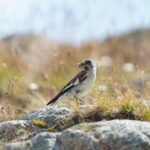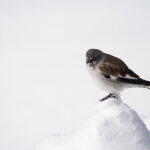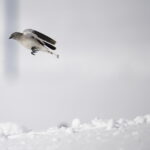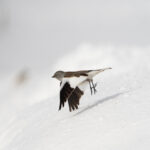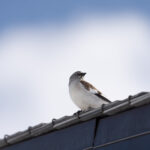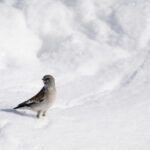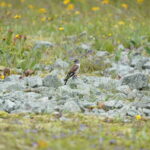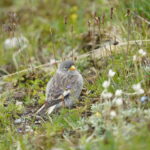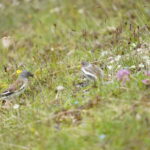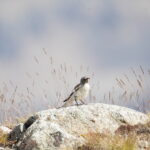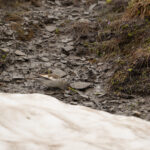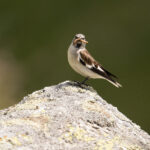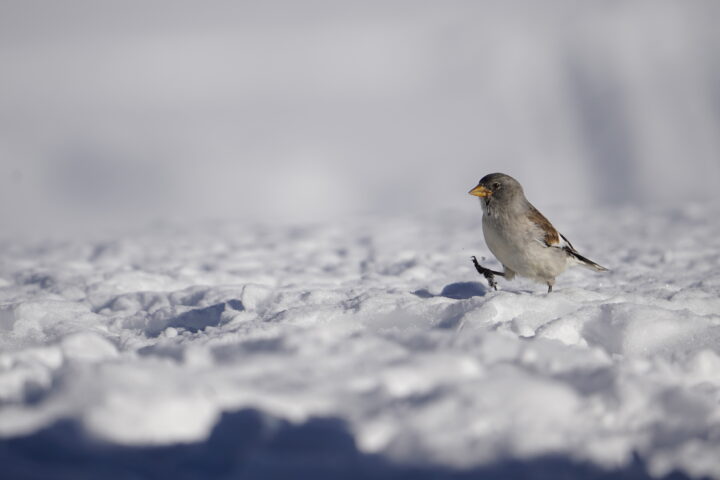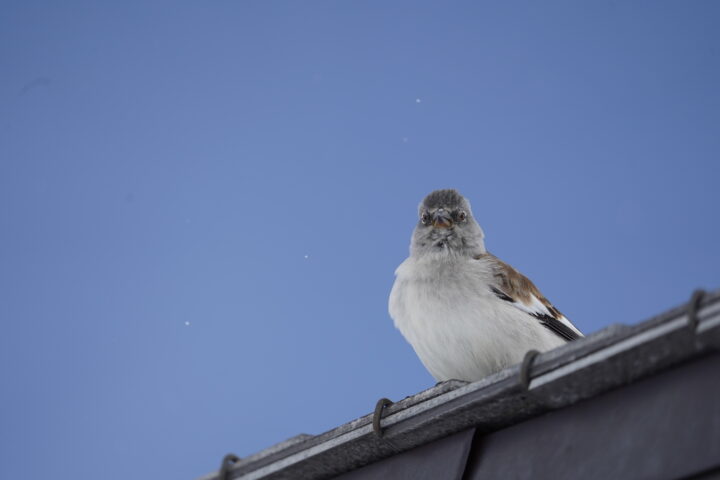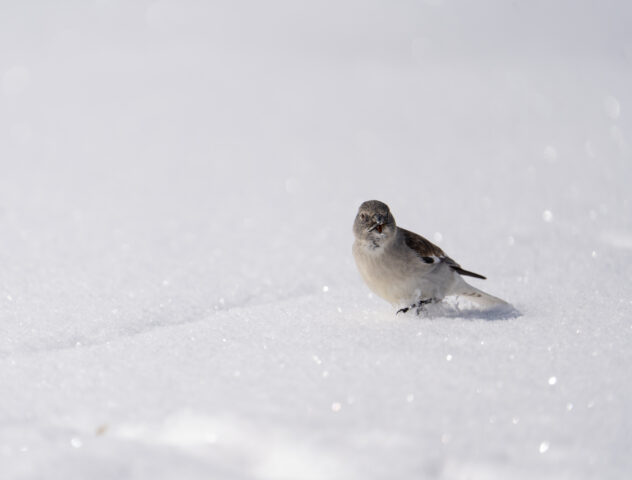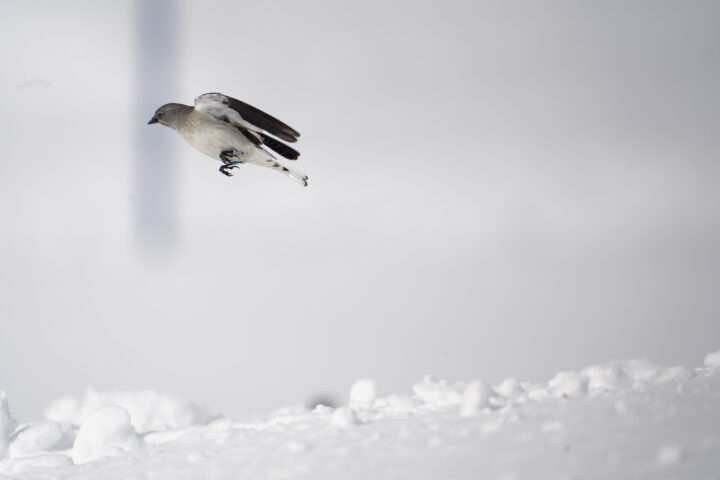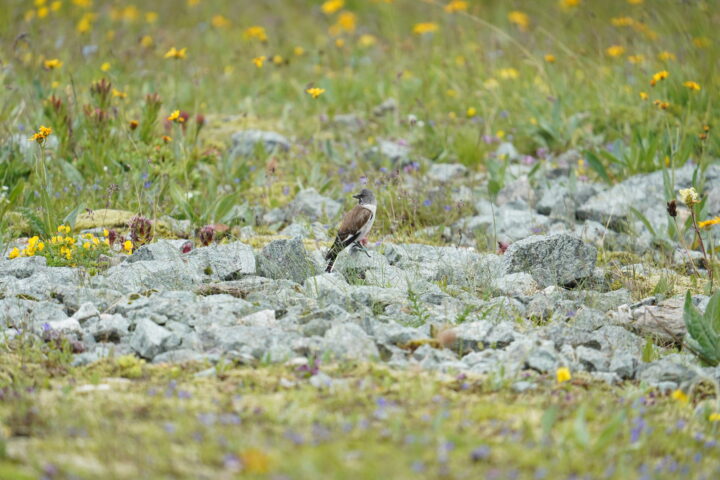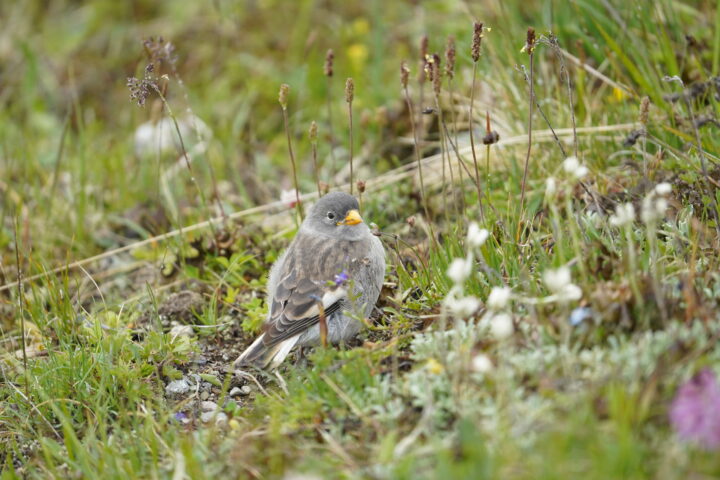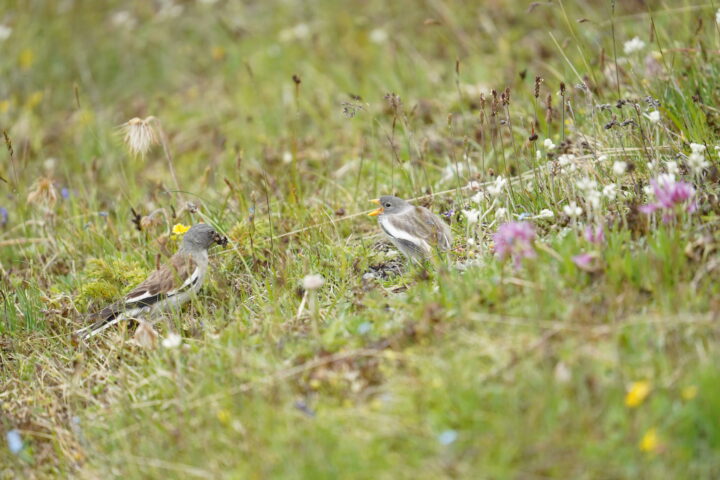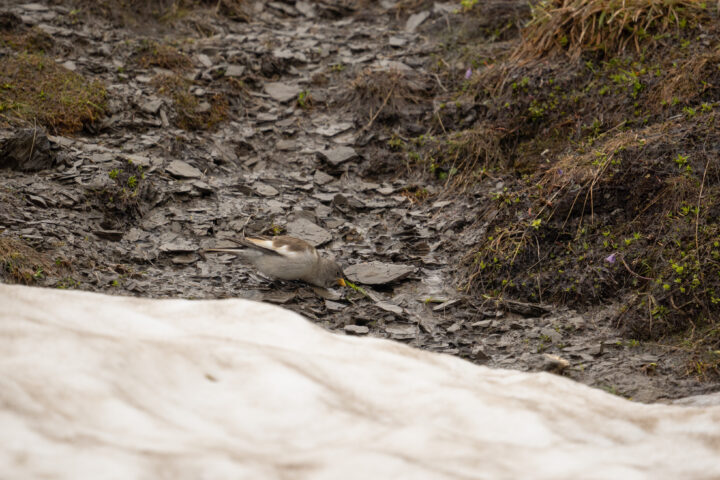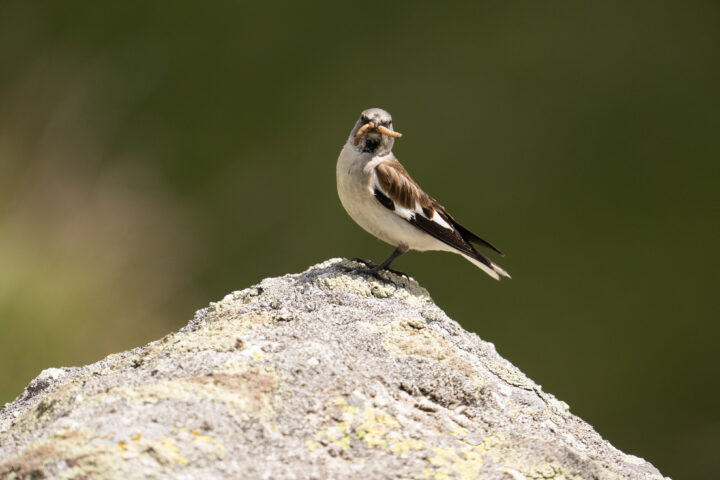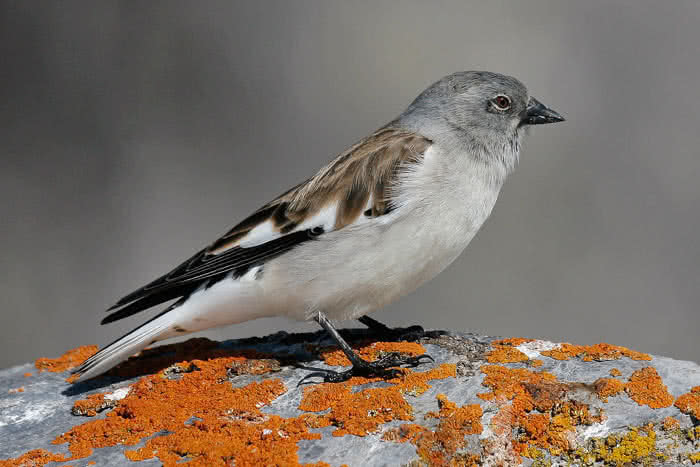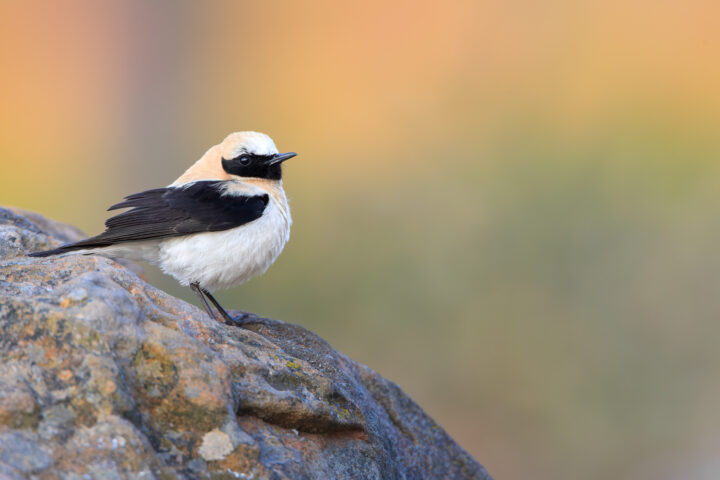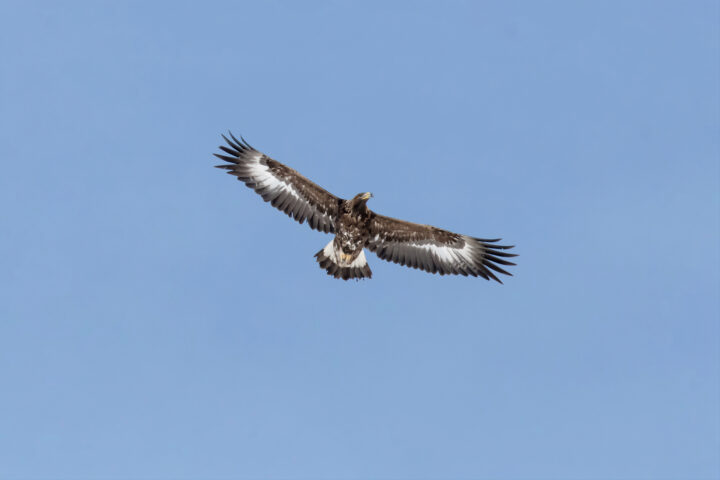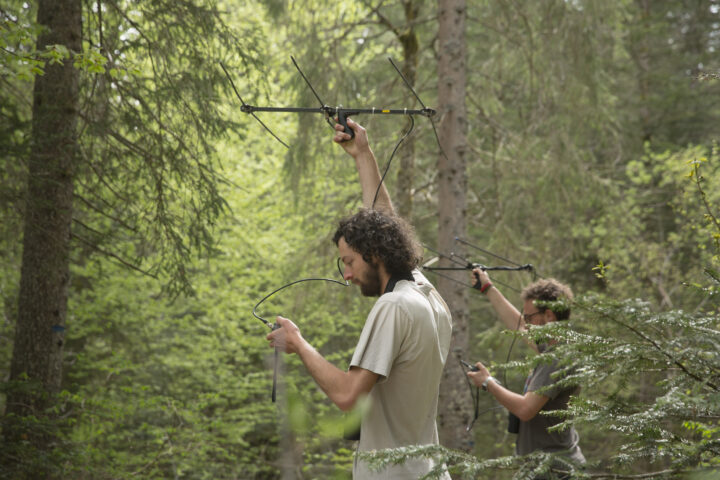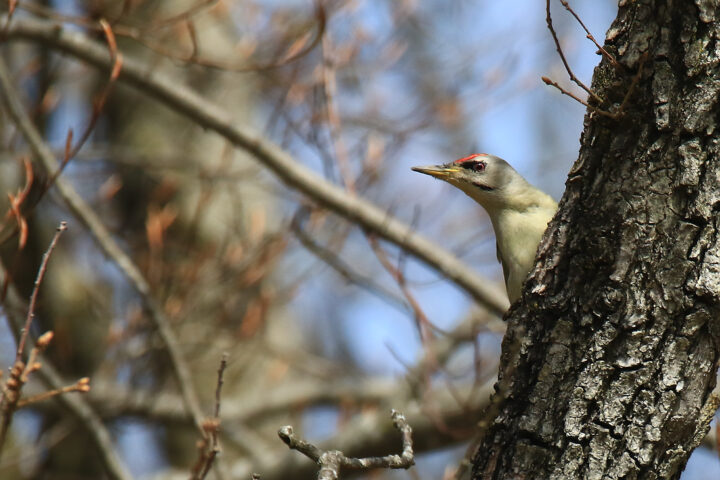The habitat of the highly specialised White-winged Snowfinch is currently undergoing dramatic changes. We investigate the effects of these changes on breeding biology and population dynamics and explore possible measures to support the declining population.
White-winged Snowfinch
White-winged Snowfinch
White-winged Snowfinch
White-winged Snowfinch
White-winged Snowfinch
White-winged Snowfinch
White-winged Snowfinch
White-winged Snowfinch
White-winged Snowfinch
White-winged Snowfinch
White-winged Snowfinch
White-winged Snowfinch
White-winged Snowfinch
White-winged Snowfinch
White-winged Snowfinch
White-winged Snowfinch
Population dynamics of the White-winged Snowfinch
A cold weather specialist in a warming world
Domain
Research
Unit
Ecological research
Topic
Ecology, Evolution, Species Recovery
Habitat
alpine habitats, rocky terrain
Project start
2015
Project status
ongoing
Project management
Franziska Korner
Project region
Glarus, Grisons, Lucerne, Nidwalden, Obwalden, St Gallen, Ticino, Schwyz, Valais, Uri
Project team members
Betroffene Vogelarten
Unit
Ecological research
We investigate the diverse interactions of birds with their environment, from individual settlement behaviour to species communities.

















